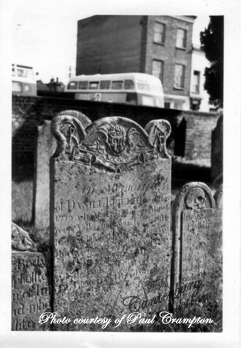
![]()
~ HOLY CROSS GRAVEYARD ~
WESTGATE, CANTERBURY
Inscriptions inside Holy Cross Church from J. M. Cowper
Inscriptions from Holy Cross Churchyard from J. M. Cowper
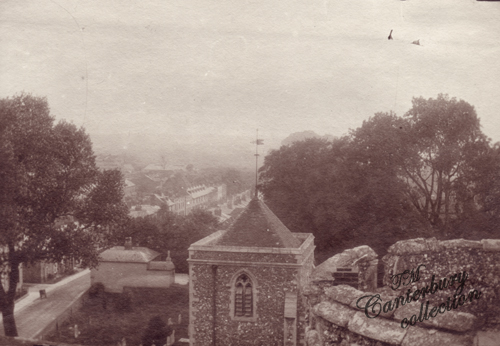
A view of the Holy Cross Church Tower and Graveyard with St. Peter's Street in the background on the left (a photograph in my collection)
Stone of Daniel Friend center, John Friend on the right and Thomas Friend to the far left
Black & White photo courtesy of Paul Crampton www.paulcramptonbooks.co.uk/
Below are the same three memorials now
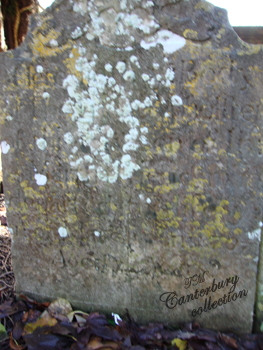
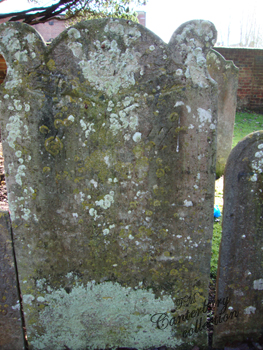
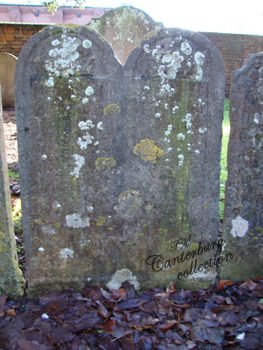
Inscriptions inside Holy Cross Church from J. M. Cowper
Inscriptions from Holy Cross Churchyard from J. M. Cowper
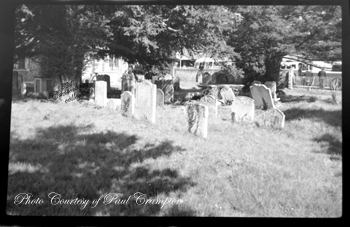
Black & White photo courtesy of Paul Crampton www.paulcramptonbooks.co.uk/
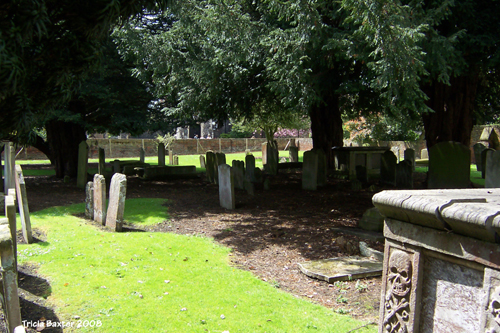
"Churchyard of Holy Cross looking towards Tower House"
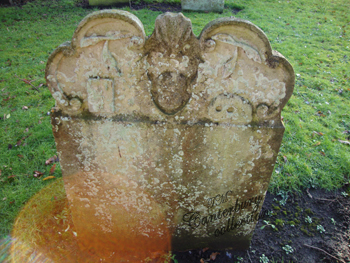 _
_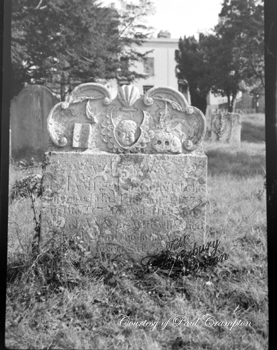
James LEGGETT Memorial
Black & White photo courtesy of Paul Crampton www.paulcramptonbooks.co.uk/
A well-kept churchyard usually means a well-kept parish; and a reverent care for the last resting-place of the dead generally implies that the living are neither neglected nor forgotton. The feeling is gradually gaining ground that the Parish Churchyard deserves a better fate than to serve as an accommodation pasture to be let at so many shillings a year to the local butcher, into which he may turn his sheep until he requires them elsewhere. This custom of using burial grounds as sheep-walks has, I think, done much towards reducing many churchyards to the very unsatisfactory condition in which they now are. The first thing required is that the Incumbent should sacrifice the very small profit he receives from the churchyard; then with a small outlay on the part of the parishioners, and a little care regularly bestowed, the outside of the house of God will correspond with the order and cleanliness which are generally, and should always be found within. JWC
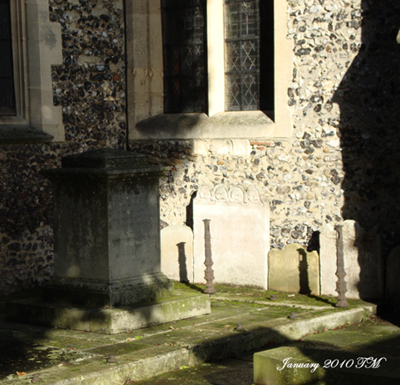 _
_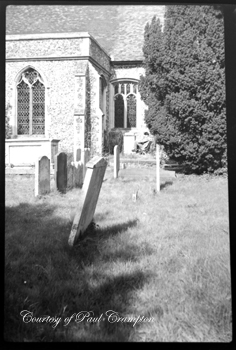
Black & White photo courtesy of Paul Crampton www.paulcramptonbooks.co.uk/
In crowded cities, where open spaces are few and far between, there is some excuse for "Brabazonising" our disused burial grounds by converting them into places of recreation; but in small cities like our own, where the green fields and breezy hills are within easy reach of all but the very infirm, our duty seems to be to beautify these hallowed spots under whose carpet of grass moulder the remains of many generations of our ancestors. It is true that all our dead do not lie under the sod. The churchyard with which this little volume deals extended, not very many years ago, into what is now the public highway on the north side of the church. The increase of population and the increase of traffic made it necessary to open a roadway between the City Gate and the church; and to do this the churchyard on that side had to be sacrificed. The Memorial Stones, or some of them, were then removed to the south side of the church, and placed in the ground there, still commemorating the dead, but not indicating the spot where their bodies were laid.
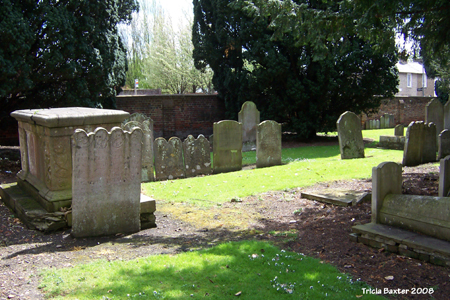
"Churchyard of Holy Cross looking towards St. Peter's Place"
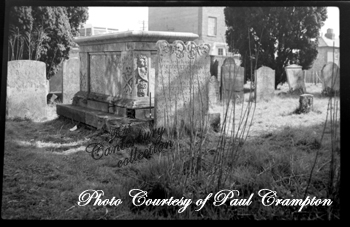
Black & White photo courtesy of Paul Crampton www.paulcramptonbooks.co.uk/
When I undertook to put Holy Cross churchyard in due order, part of my plan was to copy all the inscriptions which remained, with a view to their permanent preservation, and this I have done with all the care and all the accuracy I could bestow. Small as our churchyard is, and few, comparatively, as are the Memorials, it has not been an easy task. But, in one sense, it has been a pleasant one; and it has been all the more agreeable because I felt I had the approbation of some few whose good opinion I value. JWC
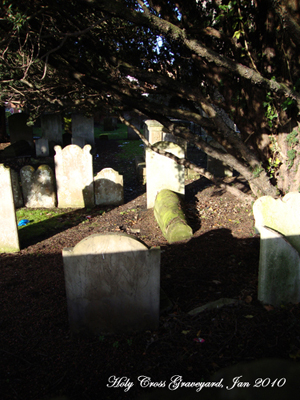
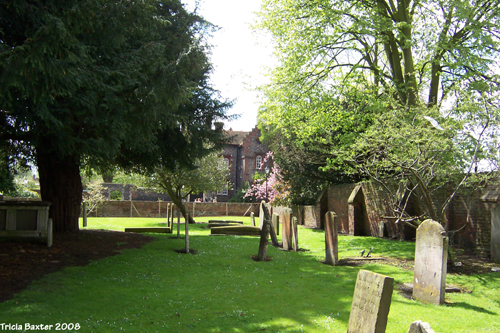
"Churchyard of Holy Cross looking towards Tower House" You can just see Tower House in the background beyond the wall
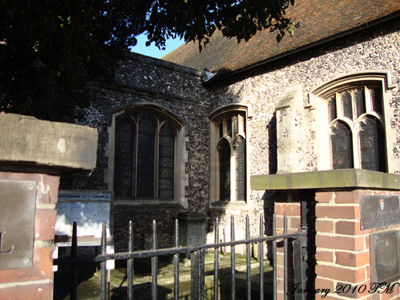
Although the Memorials which I have here endeavoured to rescue from the effacing hand of Time may not contain the name of even one great man, I think not many will look through them without agreeing with me that they ought to be preserved. The large proportion of foreign names, representing those who left home and country for the sake of their religion, would justify me in doing what I have done, if any justification were necessary. One of the many glories of Canterbury is the welcome it gave to those who sought a refuge here from persecution of the fiercest kind abroad; and our churchyards and Parish Registers are full of the names of the brave men and women who literally forsook all rather than submit to what they believed was wrong. The many descendants of these, who to-day stand in the foremost ranks of Englishmen, would be doing honour to themselves as well as to the dead if they would combine to erect a memorial to the Refugees who sought and found a home, and large numbers of them a grave, in our parish. It has been suggested that their descendants, who are now scattered over England and have become as thoroughly English as ourselves, should erect some monument in their memory. The Members of the Huguenot Society have visited the place, and when they were in Canterbury the idea of a Memorial Window in Holy Cross Church was mooted. Who will assist us in this work? JWC
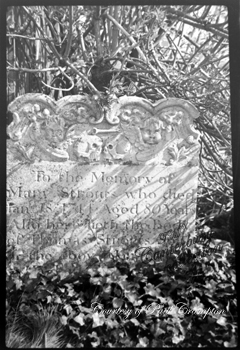 __
__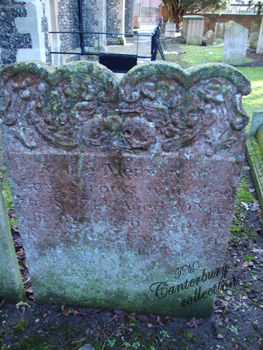
Stone of Mary Strouts
Black & White photo courtesy of Paul Crampton www.paulcramptonbooks.co.uk/
The following are the names of those who kindly responded to my* appeal for funds to put our churchyard in order: (*J. M. Cowper)
C. J. AYRE, Canterbury
Joseph BATHO, London
B. Harris COWPER, London
F. W. CROSS, Canterbury
Henry FIELD, Canterbury
J. Henniker HEATON, M.P., London
Edward HOMERSHAM, Streatham
John HOMERSHAM, London
Robert HOVENDEN, Croydon
James KNOWLER, Manchester
The Company of Leathersellers, London
Alderman LINOM, Canterbury
C. MASON, London
Richard PIERCE, Canterbury
Walter REEVE, Canterbury *Chemist and Druggist of Canterbury (Westgate)
Henry WAGNER, London
Alfred James WATERLOW, Reigate
Stephen WILLIAMSON, Canterbury
Councillor J. E. WILTSHIER, Canterbury
To these friends I commend this volume.
J. M. COWPER
Holy Cross Canterbury, February 18, 1888
Burial of a Mary TERRY, of Westgate, age 17 years, on August 13th, 1820
Index of Wills
William SAINT, beere-brewer, Hollyecross Westgate, Canterbury, 1654 folio 335
